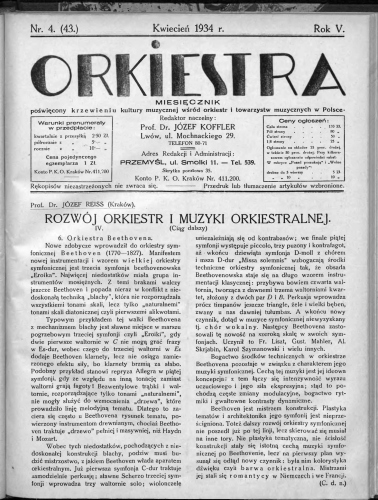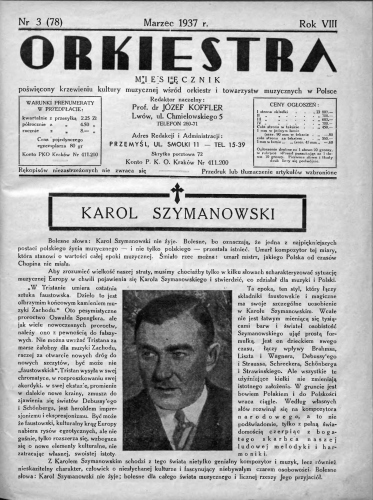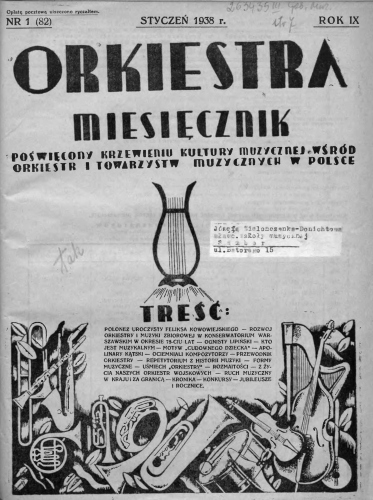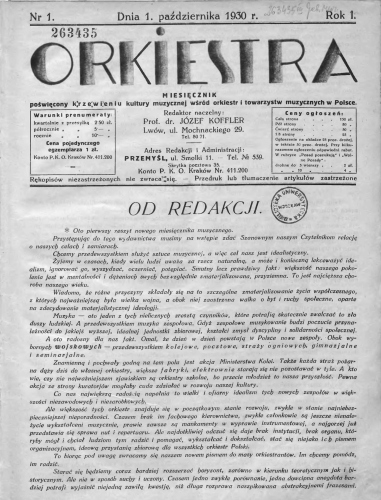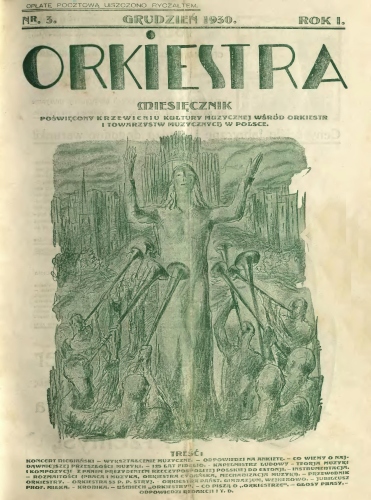
Orkiestra
Orkiestra was a monthly periodical founded by Józef Koffler in 1930, with the stated mission of ‘a propagation of musical culture among orchestras and music societies in Poland’. The editorial office was situated in Przemyśl at 11 Smolki Street, with printing operations conducted at Jan Łazor's printing house in Przemyśl.
In 1931, the Ministry of Military Affairs (Department of Infantry) issued a circular encouraging military bands and individual musicians to subscribe to the journal. The publication was commended for its 'high yet accessible standard, rich content, and collaboration with distinguished musicians.'
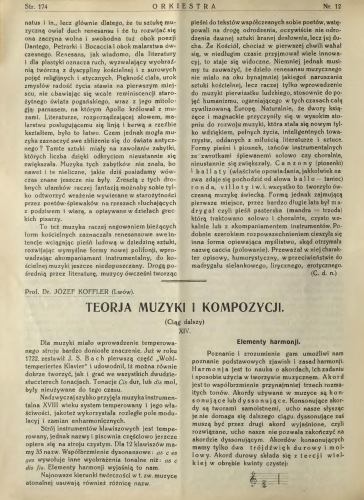
Orkiestra – Theory of Music and Composition
This is a systematic textbook of music theory, supported by musical examples. The work opens with an introduction to the aims and objectives of music theory (I), followed by discussions of musical alphabet (II) and solmization (III). Sections IV–V address musical notation, while VI–VII explore chromatic signs. Further sections examine rhythmic values (IX–X), intervals (XI), and tuning systems – Pythagorean, just, and tempered (XII–XIII). Koffler then proceeds to harmonic triad (XIV–XV), chord functions (XVI), and cadences (XVII). The later chapters cover major and minor modes (XVIII–XXI) and performance indications – tempo and dynamics (XXII–XXIII). The textbook concludes with an examination of meter and rhythm (XXIV).
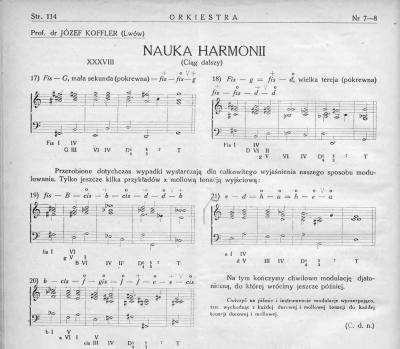
Orkiestra – Harmony
This course in harmony presents comprehensive foundations of functional harmony. The material begins with fundamental concepts (major and minor triads, harmonic functions T-S-D) and gradually progresses to more advanced topics, such as chord inversions, seventh and ninth chords, various types of cadences, tonal systems, and modulation techniques. The author pays particular attention to the proper connection of chords and voice leading, providing numerous musical examples and recommending specific practical exercises. The course combines theory with practice, requiring students to complete written assignments as well as perform exercises on an instrument. It constitutes a valuable testament to music pedagogy in the Polish educational tradition of the first half of the twentieth century.

Orkiestra – Instrumentation
This constitutes a systematic exposition of organology and the art of instrumentation. The early texts (1931–1932) take the form of a guide to orchestral instruments – Koffler describes in turn the woodwind, brass, percussion, and string instruments, analyzing their construction, ranges, timbral characteristics across different registers, and performance techniques. He devotes particular attention to special playing techniques, such as harmonics and pizzicato on strings, stopped and muted tones on wind instruments, and various types of strokes on percussion instruments. In later articles (from 1936 onwards), Koffler moves from the description of individual instruments to the practical application of instrumental knowledge – he analyzes orchestral unisons, timbral contrasts, and examples from works by Mozart, Haydn, Beethoven, and other composers.
